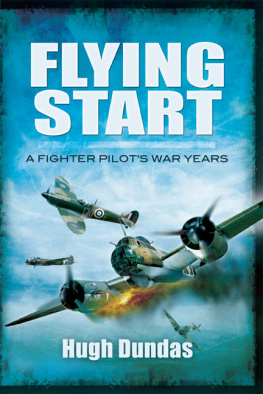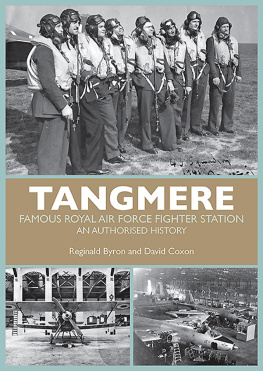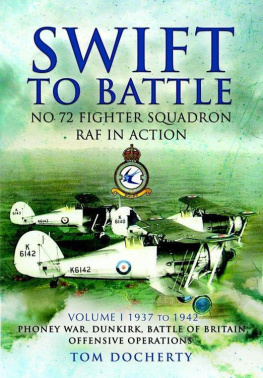
Published by
Grub Street
4 Rainham Close
London
SW11 6SS
Copyright Grub Street 2011
Copyright text Air Chief Marshal Sir Frederick Rosier and David Rosier 2011
Copyright foreword Air Chief Marshal Sir Michael Graydon 2011
Copyright appreciation Christopher Shores 2011
British Library Cataloguing in Publication Data
Rosier, Frederick.
Be bold.
1. Rosier, Frederick. 2. Fighter pilots--Great Britain-
Biography. 3. Great Britain. Royal Air Force--Officers-
Biography. 4. World War, 1939-1945--Aerial operations,
British. 5. World War, 1939-1945--Personal narratives,
British.
I. Title II. Rosier, David.
940.5'44'941'092-dc22
ISBN-13: 9781906502973
EPUB ISBN: 9781909808621
All rights reserved. No part of this publication may be reproduced, stored in a
retrieval system, or transmitted in any form or by any means electronic, mechanical,
photocopying, recording or otherwise, without the prior permission
of the copyright owner.
Cover design by Sarah Driver
Edited by Sophie Campbell
Formatted by Sarah Driver
Printed and bound by MPG Ltd, Bodmin, Cornwall
Grub Street Publishing only uses
FSC (Forest Stewardship Council) paper for its books.
FOREWORD
Keeping a diary is something that few people do today unless they are politicians looking to make a buck. And whilst we have seen recently instances of some generals recording their life story, to the best of my knowledge, no senior airman or sailor has done so for quite some time. Mores the pity I suppose because there is much to say as our armed forces are steadily eroded to impotence. Nevertheless, one should be careful, for such accounts are too often tarnished by selective memory and self-justification.
My own efforts in the mid 1990s are certainly not for publication even if I could now find them!
Sir Fred Rosiers story is different. Firstly, and unusually, it covers two seminal periods of the twentieth century which have defined our lives today The Second World War, extensively analysed still, devastated the lives of millions in so many countries; and the Cold War which extended for some forty-five years, most of my service life, touched virtually every corner of the planet in one way or another.
These memoirs, the main sources of which were his personal papers and the letters he wrote to Het as his girlfriend and later his wife of fifty-nine years, were written for no other purpose than to keep a record. People did then, and how much we have all gained from such memories often scribbled on old notebooks or scraps of paper. I doubt that emails will carry the same interest or natural elegance should they be unearthed in the future.
Freds recollections, now collated into chapters by his eldest son David, are a delight. They are, as one would expect from a man who took pleasure in the simple expression of ideas, refreshingly uncomplicated. He wrote as he spoke, without pretence, as he saw things at the time, and with no eye on the judgement of history.
His love of the Royal Air Force and of life shines through, as does his integrity The reader will not learn much of why Fred Rosier was thought of so highly as an operational commander; nor perhaps will he or she appreciate just how influential were his views with allies because of the respect in which he was held. Sir Fred was too modest to tell us this. But those who had the privilege of working for him will know. They will recall the man who looked the part, who played the violin, who could drink a glass of water placed on the ground without using his hands, and a man who could hold a roomful of tough nuts in the palm of his hands with the power of his words and his matchless sense of timing. And for the younger generation, it will, I hope, be of interest for its intriguing look into another world, and another time.

The author as one of Sir Graydons suprise guests on This is your Life, 1993.
Mostly however, it is a rattling good story.
Air Chief Marshal Sir Michael Graydon
APPRECIATION
Fighter pilots are something of a breed apart, and Fred Rosier was certainly no exception to this. At the conclusion of hostilities in 1945, amongst those born within the British Isles many who had survived the war intact stayed in the Royal Air Force. Generally speaking, and perhaps not surprisingly, the majority and particularly those who had distinguished themselves during the war, would follow successful careers, either in the service, or in other chosen professions or industries.
Of those remaining in the service, at least twenty reached Air rank, more than half of these receiving promotions beyond the rank of air vice-marshal. Indeed, two achieved the ultimate appointment as marshals of the Royal Air Force. Of this elite group, four became air officers commanding (AOC) Fighter Command, and one of a similar position with Bomber Command. One of the former quartet was Sir Frederick Rosier.
Of this select group of twenty, twelve had joined the regular RAF in the years prior to the outbreak of war. Of the seven who had entered the service following the commencement of hostilities, no less than three had been serving with the Cambridge University Air Squadron, one was a member of the exclusive Auxiliary Air Force, and two had joined the Volunteer Reserve before September 1939. Only one was too young to have commenced any form of service before this date, but he had history, being the son of an air vice-marshal who had been a First World War fighter ace. Of this latter group, two commenced their service as sergeants, one of them, Neil Cameron, ultimately becoming one of the marshals of the RAF, and chief of the defence staff.
Against this background, it is particularly interesting to note Fred Rosiers entry to the service in 1935. It needs to be remembered that at that time the United Kingdom and England in particular was considerably more class conscious than it is today. All the rest of the dozen future leaders were the product of the public school system, or similar establishments in the Commonwealth; indeed, three were also products of the RAF College, Cranwell. Fred records how on commencing his training, he was the only state school pupil in his group. That he was accepted for training for a short service commission, and by his fellow officers, says much for his personality, probably considerably reinforced by his sporting prowess, not least on the rugby field.
Serving initially with one of Fighter Commands most notable squadrons, he rapidly became a flight commander and an accomplished fighter pilot. Moving in these circles, he came increasingly to build a wide range of friends amongst the close-knit community of the command. One of the fascinating aspects of his account, to this reader at least, is the liberal seasoning thereof with the well-known names of many of the pilots with whom he served.
His posting to form and command a new unit at the outbreak of war meant that he did not enter action as part of an established and well-practised team, as would have no doubt been the case had he still been with 43 Squadron in June 1940. Being shot down and quite badly burned so early in the war meant that he was effectively out of action during the months which followed, preventing his chance to become one of the aces of the Battle of Britain.
The move to the active, but difficult, Western Desert theatre the following year rapidly provided opportunities for his leadership skills to be demonstrated to the full, resulting in he and his close friend, Bing Cross becoming the operational leaders of the first two fighter wings of the Western Desert Air Force in time for Operation Crusader, the biggest British offensive of the war up to that time November 1941.
Next page
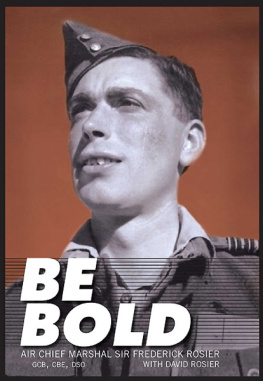
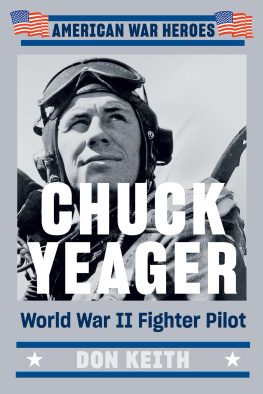

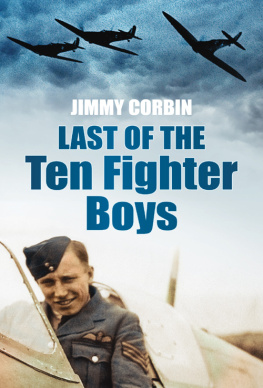
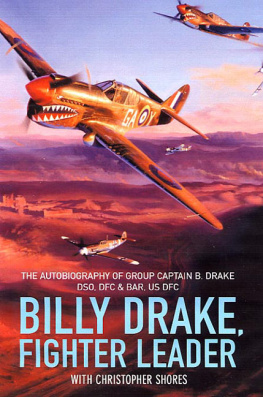
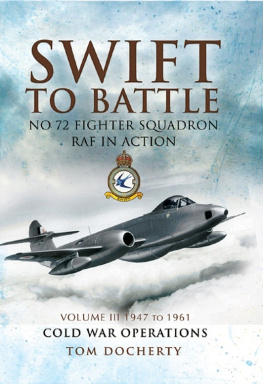
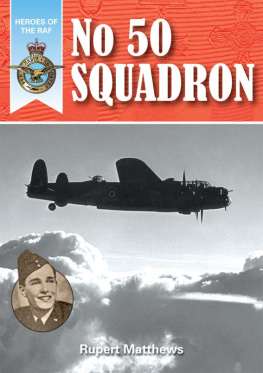
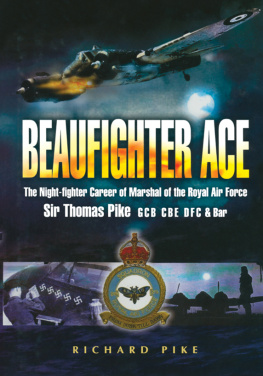
![Bar Wing Commander Guy P. Gibson VC DSO - Enemy Coast Ahead [Illustrated Edition]](/uploads/posts/book/180257/thumbs/bar-wing-commander-guy-p-gibson-vc-dso-enemy.jpg)
